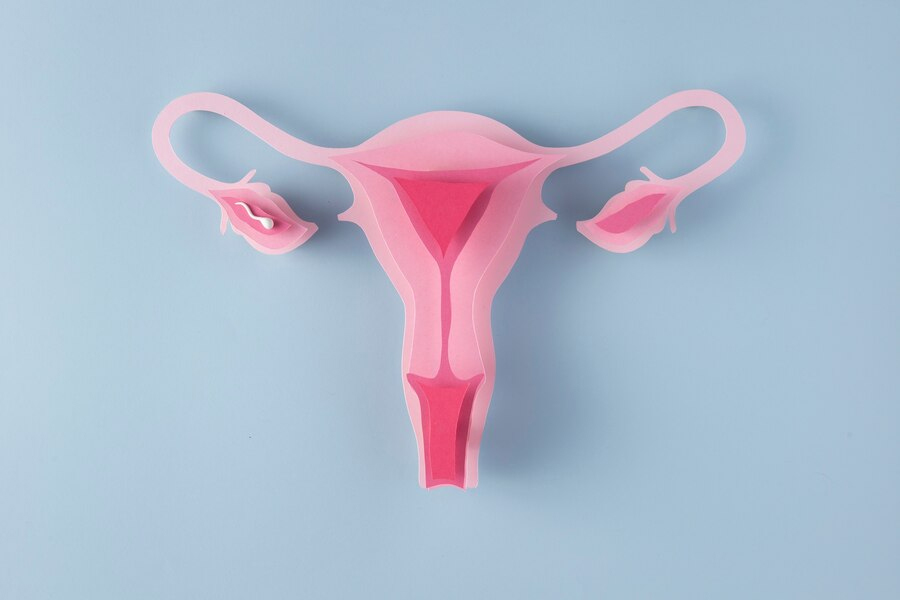
Endometriosis is a condition wherein tissue similar to the lining of the uterus grows outside the uterus, triggering intense pelvic pain and sometimes bleeding. In certain cases, it may also increase the risk of infertility, making it difficult for women to conceive. But a more serious concern involves its association with an increased risk of certain cancers in the female reproductive system. To confirm the accuracy of the claim and to shed light on the ways to approach endometriosis, we spoke to Dr D Sangeeta Gomes, Consultant - Obstetrician, Gynaecologist, and Infertility Specialist, Motherhood Hospitals, Bengaluru.
Table of Content:-
Also Read: Symptoms Of Endometriosis-Related Leg Pain: Why It Occurs And How To Treat It
Understanding Endometriosis

The World Health Organization (WHO) suggests that endometriosis is a chronic disease associated with severe, life-impacting pain during periods, sexual intercourse, bowel movements and/or urination, chronic pelvic pain, abdominal bloating, nausea, fatigue, and sometimes depression, anxiety, and infertility.
According to the global health body, it roughly affects 10% of reproductive-age women and girls worldwide.
Dr Gomes says, "While the cause of endometriosis is unknown, it usually occurs when tissues that normally line the uterus start growing outside the uterus and can be found on the ovaries, fallopian tubes, the intestines, or other organs within the pelvis.”
In some rare cases, it can even spread beyond the pelvic region.
Can Endometriosis Increase The Risk Of Cancer?
Many factors, ranging from age, obesity, a family history, and an unhealthy lifestyle, can increase your risk of cancer.
In certain cases, an infection or an underlying medical condition may also contribute to the risk.
As far as endometriosis is concerned, studies suggest that people with endometriosis may have a higher risk of developing certain types of ovarian cancers, particularly endometrioid and clear cell types, as compared to those without the condition. However, it is important to note that endometriosis itself does not cause cancer and that the overall chance of developing ovarian cancer due to endometriosis is still relatively low, says Dr Gomes.
“Most women with endometriosis will not develop ovarian cancer unless they have a family history of ovarian cancer or other risk factors are at play, " she adds.
In fact, the chance of developing cancer with endometriosis is less than 1%, according to Harvard Health Publishing.
Also Read: Retrograde Menstruation: What Is This Condition That Increases The Risk Of Endometriosis?
Identify Endometriosis Symptoms On Time

As per Dr Gomes, endometriosis has four stages or types determined by factors such as location, size, number, and depth of endometrial implants. These include:
- Minimal
- Mild
- Moderate
- Severe
Depending on the stage and the severity of the symptoms, endometriosis can impact women in both physical and emotional ways.

Severe symptoms of the disease may interfere with a woman’s daily activities, work, and social life, leading to a reduced quality of life. These include:
- Pelvic pain during menstruation or sexual intercourse
- Menstrual irregularities
- Infertility
- Gastrointestinal symptoms, such as bloating, constipation, diarrhoea, or abdominal discomfort, particularly during menstruation
- Urinary symptoms like painful urination, urgency, or frequent urination
- Fatigue
- Feelings of frustration, anxiety, depression, or stress
Treatment Options
Currently, there is no known cure or preventative method for endometriosis, and treatment is usually aimed at controlling existing symptoms. While early diagnosis is crucial, managing pain is a key aspect of treating endometriosis. These include:
Hormonal therapy: Hormonal treatments intend to suppress menstruation and reduce the growth of endometrial tissue outside the uterus. Options include birth control pills, hormonal intrauterine devices (IUDs), hormonal injections, or GnRH agonists.
Surgical intervention: In cases of severe endometriosis or when certain treatments fail to provide relief, surgery may be necessary. Laparoscopic surgery is often used to remove endometrial implants, scar tissue, and adhesions.
Regular follow-up: After initiating treatment, it is crucial to maintain regular follow-up appointments with your healthcare provider to monitor your condition, assess treatment effectiveness, and adjust the treatment plan as needed.
Conclusion
Endometriosis is a complex disease that affects the female reproductive system in several ways. However, there is only limited evidence to suggest that it increases the risk of cancer.
Unfortunately, there is currently no cure for endometriosis. Treatment usually involves symptom management with hormonal therapies, lifestyle modifications, and surgical intervention. Do not leave symptoms unaddressed, and consult a doctor to understand the severity of your condition and determine the course of action ahead.
How we keep this article up to date:
We work with experts and keep a close eye on the latest in health and wellness. Whenever there is a new research or helpful information, we update our articles with accurate and useful advice.
Current Version